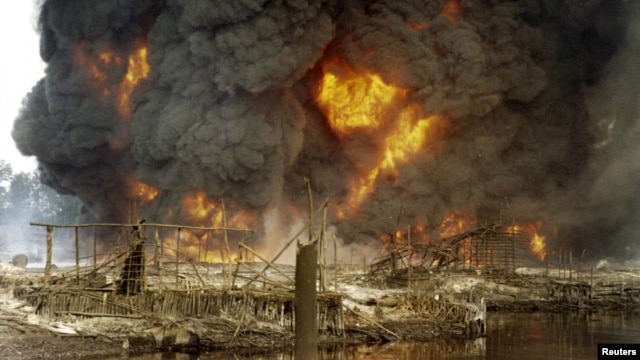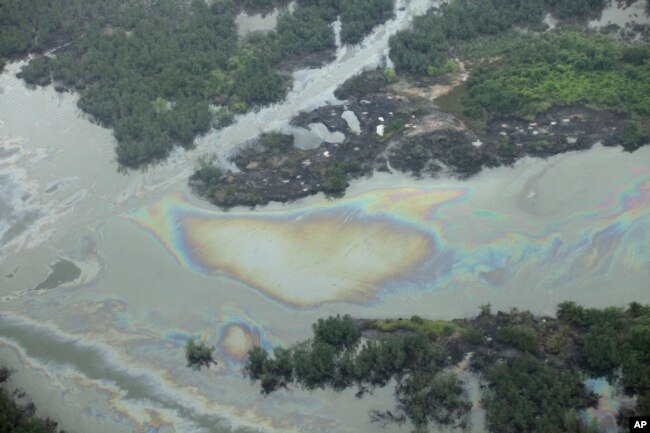- Banned
- #1

Yenagoa — A fresh oil spill from Shell's Okordia/Rumueme trunk line has devastated Ikarama community in Yenagoa Local Government Area of Bayelsa State.
Community sources said the spill occurred on Wednesday and has been spreading fast into the surrounding swamps.
Source: Fresh Oil Spill in Bayelsa Community - eReporter





